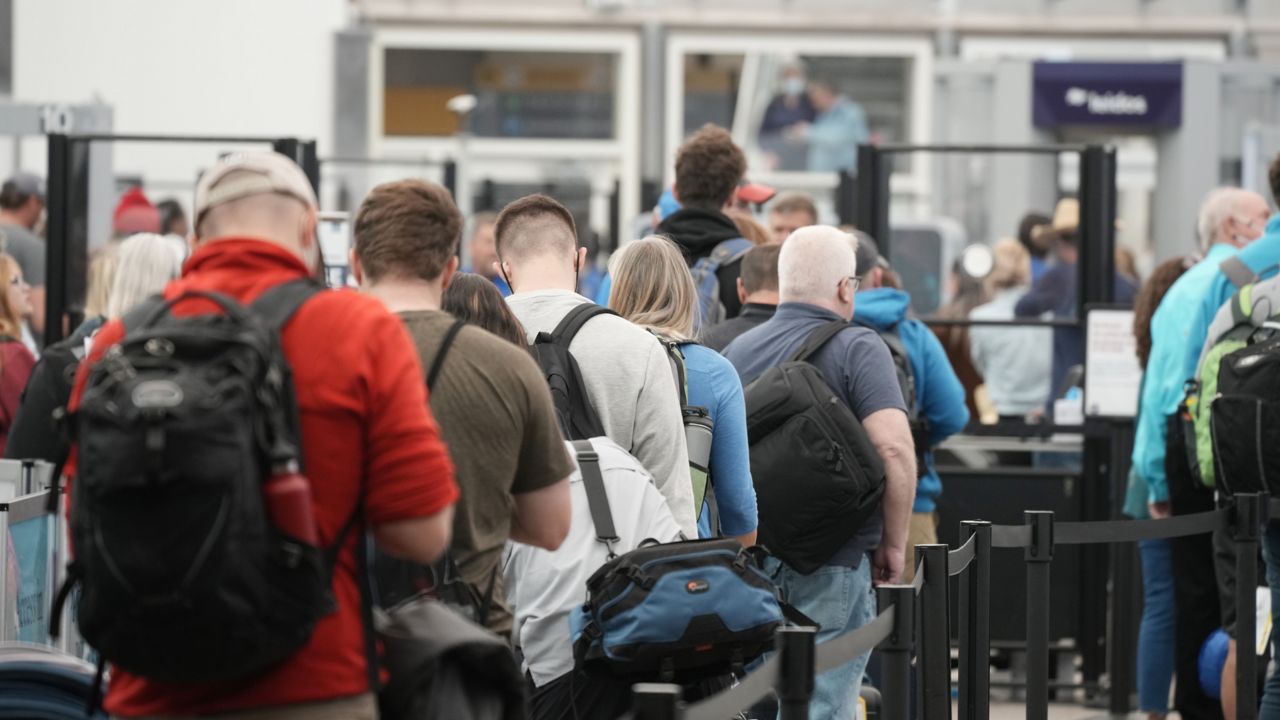Airlines canceled thousands of flights over the Memorial Day weekend, leaving passengers stranded at airports across the country – and around the world – in an ominous start to the summer travel season.
U.S. airlines canceled more than 2,800 flights from Thursday through Monday, or about 2% of their schedules, according to tracking service FlightAware.
Delta Air Lines, usually among the top performers, had the worst record among major carriers with more than 800 canceled flights over the five-day span. Delta Air Lines on Saturday had suffered the most among U.S. airlines, with more than 250 flights, or 9% of its operations, eliminated that day alone. Hartsfield-Jackson International Airport in Atlanta, where Delta is based and has its largest hub, experienced heavy travel delays.
Delta noted in an email to The Associated Press that Saturday’s cancellations were due to bad weather and “air traffic control actions,” noting it was trying to cancel flights at least 24 hours in advance this Memorial Day weekend.
Delta either canceled 4% and delayed 17% of its flights on Monday; American Airlines canceled 3% and delayed 16% of its flights and United canceled 1% and delayed 17% of its flights the same day, per FlightAware. Around 24% of JetBlue’s flights were delayed Monday, while only 1% were canceled.
In a statement to Spectrum News, American Airlines said the vast majority of the weekend's delays and cancellations were the "result of weather, specifically from severe thunderstorms in Miami Sunday."
Delta and United Airlines did not immediately return Spectrum News’ request for comment Tuesday about the weekend troubles.
The good news was that cancellations were down sharply on Tuesday. Total cancellations within, into or out of the U.S. reached 422 on Monday, but had only hit 63 by early Tuesday afternoon.
Various forecasts of high numbers of travelers over the weekend proved to be accurate. The Transportation Security Administration reported screening more than 11 million people at airport checkpoints from Thursday through Monday.
That was down 9% from the same days in 2019, but an increase of almost 25% over last year. Crowds of just under 2.4 million on both Thursday and Friday nearly matched the pandemic high set on the Sunday after Thanksgiving last year.
The weekend delays in travel do not bode well for a summer that experts expect might match or even surpass levels from pre-pandemic days.
Airlines have thousands fewer employees than they did in 2019, and that has at times contributed to widespread flight cancellations.
On top of that, Delta announced on its website on Thursday that from July 1 to Aug. 7, it would reduce service by about 100 daily departures, primarily in parts of the U.S. and Latin America that Delta frequently serves.
“More than any time in our history, the various factors currently impacting our operation — weather and air traffic control, vendor staffing, increased COVID case rates contributing to higher-than-planned unscheduled absences in some work groups — are resulting in an operation that isn’t consistently up to the standards Delta has set for the industry in recent years,” said Delta’s Chief Customer Experience Officer Allison Ausband in a post.
People who are only now booking travel for the summer are experiencing sticker shock.
Domestic airline fares for summer are averaging more than $400 for a round trip, 24% higher than this time in 2019, before the pandemic, and a robust 45% higher than a year ago, according to travel-data firm Hopper.
Internationally, fares are also up from 2019, but only 10%. Prices to Europe are about 5% cheaper than before the pandemic — $868 for the average round trip, according to Hopper. Keyes said Europe is the best travel bargain out there.
This article includes an updated statement from American Airlines indicating severe thunderstorms affected travel on Sunday, not Saturday.



